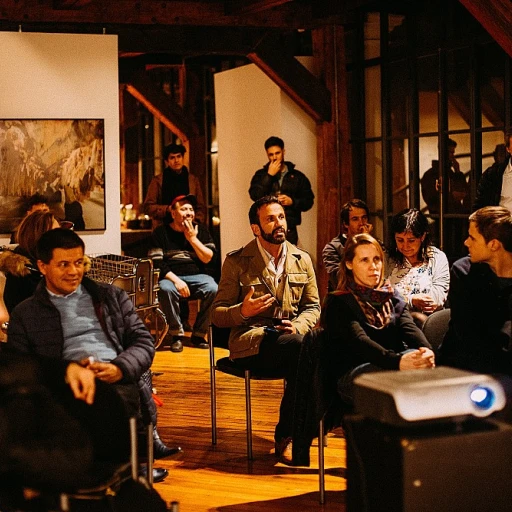
Defining job vs career in the context of HR interviews
Clarifying the Terms: Job vs Career in HR Interviews
When preparing for HR interviews, understanding the difference between a job and a career is essential. Many candidates, especially students or those early in their professional development, may use these terms interchangeably. However, HR professionals look for clarity in how you view your work and long-term goals.
- Job: A job is typically seen as a position you hold to earn money and support your immediate financial needs. It can be short term, focused on gaining experience, or simply a way to pay the bills. Jobs often require specific skills or education training relevant to the current job, but may not always connect to your long-term plans.
- Career: A career is a long-term pursuit, often involving a series of jobs that build on each other. It reflects your commitment to professional development, ongoing education, and planning for the future. A career path is about growth, development, and aligning your work with your personal values and long-term goals.
HR interviewers want to know if you are pursuing a career or just looking for a job. This distinction helps them understand your motivation, whether you seek financial security, personal growth, or simply to gain experience. The way you talk about your current job or future plans can signal if you are thinking about your occupation as a career or just a means to earn money.
For those entering the workforce from campus or considering a change, reflecting on your education, training, and what you want from your work can help you articulate your goals clearly. This clarity will support your answers in interviews and help HR professionals see how you might fit into their organization for the long term.
To learn more about how technology is shaping the hiring process and supporting both jobs and careers, check out this resource on effective remote hiring in HR.
Why interviewers ask about your long-term goals
Why HR Interviewers Focus on Your Long-Term Vision
During HR interviews, candidates are often asked about their long-term goals. This question is not just about curiosity—it helps interviewers understand whether you view your current job as a short-term way to earn money or as a step in your broader career path. The difference between a job and a career is important in this context. A job may be seen as a means to gain experience or financial security in the short term, while a career involves ongoing development, education, and a commitment to professional growth.
HR professionals want to know if you are planning your future with their organization in mind. They look for signs that you are pursuing a career, not just a job. This means showing that you value training, education, and skills development, and that you see your work as part of a larger journey. For students or recent graduates, discussing how campus activities or internships support your long-term career occupation can demonstrate this mindset.
- Commitment to development: Employers want people who invest in their own education and training, and who see the current job as a building block for their career long term.
- Alignment with company goals: If your term goals match the company’s mission, it signals you could be a good fit and may stay for the long term.
- Financial motivation vs. passion: While earning money is important, focusing only on the financial aspect can be a red flag. HR teams prefer candidates who balance financial needs with a genuine interest in the field and a desire to help people or support organizational growth.
Understanding the difference between direct hire and other employment types can also help you frame your answers. It shows you are thinking about stability, professional development, and how your experience fits into a long-term career path, not just a series of jobs.
By expressing your interest in ongoing learning, development, and supporting the organization’s goals, you demonstrate that you are not just looking for a job to earn money, but are committed to building a meaningful career. This approach helps HR professionals see you as a candidate who will contribute and grow with the company over time.
How to present your experience as part of a career path
Showcasing Your Experience as a Building Block
When discussing your experience in HR interviews, it’s important to show how each job you’ve held contributes to your overall career path. Employers are not just interested in your current job or the tasks you performed; they want to understand how your work experience, education, and training support your long-term goals and professional development. Think about your previous jobs as steps in a journey. For example, if you started as a student intern on campus, explain how that role helped you gain experience, develop essential skills, and clarify the difference between a job and a career. Did your short-term positions provide financial security or help you earn money while you pursued further education or training? Highlight how these roles were part of your plan for building a career, not just a way to earn money in the short term.- Connect your jobs to your long-term career goals and show how each position contributed to your professional growth.
- Emphasize skills you developed, such as communication, problem-solving, or leadership, and how they support your career occupation.
- Discuss any education or training you pursued to help you move forward in your career path.
- Show how your experience aligns with the company’s values and the type of work they do.
Common HR interview questions about job vs career
Typical Questions to Expect About Your Professional Journey
During HR interviews, candidates are often asked questions that help interviewers understand whether you see your work as just a job or as part of a long-term career path. These questions are designed to assess your motivation, commitment, and how you view your own professional development. Understanding the difference between a job and a career is crucial, as it can influence your answers and the impression you leave.
- "Where do you see yourself in five years?" – This question helps interviewers gauge your long-term goals and whether you are planning for a career or just looking for a short-term job to earn money.
- "What attracted you to this position?" – Here, HR wants to know if you are pursuing a career occupation that aligns with your skills, education, and professional development, or if you are simply interested in the current job for financial reasons.
- "How does this role fit into your overall career path?" – This question checks if you have a plan for your future, including education training and gaining experience that will support your long-term growth.
- "Can you describe a time when you took steps to develop your skills outside of your job requirements?" – Interviewers look for evidence of ongoing training, support, and a commitment to professional development, which are signs of someone building a career rather than just working a job.
- "What does success mean to you in your work?" – This question can reveal whether you value financial security, personal growth, or making a difference in your field, helping HR understand your motivation for pursuing a career or a job.
What Interviewers Are Looking For
HR professionals use these questions to distinguish between candidates who are focused on short-term financial gain and those who are planning for long-term career development. They want to see if you have a vision for your future, if you value education and training, and if you are committed to growing within the company or industry. Students and recent graduates may be asked about campus activities or internships to see how their education and experience support their career goals.
Being prepared to discuss the difference between a job and a career, and how your current job fits into your long-term plans, will help you stand out. Show that you are not only interested in earning money but also in building a meaningful career that supports your professional and personal development.
| Question | What It Reveals |
|---|---|
| Where do you see yourself in five years? | Long-term planning, career path focus |
| What attracted you to this position? | Interest in career vs. job, motivation |
| How does this role fit into your overall career path? | Alignment with career goals, professional development |
| Describe a time you developed skills outside your job. | Commitment to learning, career growth |
| What does success mean to you? | Values: financial, personal, or professional |
Understanding these questions and preparing thoughtful answers can help you clearly communicate the difference between a job and a career, and show that you are planning for your future with intention and purpose.
Strategies for aligning your answers with company values
Demonstrating Alignment with Company Values in Your Answers
When discussing the difference between a job and a career in HR interviews, it’s important to show that your long-term goals and values match those of the company. Employers want to see that you are not just looking for a short term job to earn money, but that you are interested in building a career path that supports both your professional development and the organization’s mission.- Research the company’s values and mission: Before your interview, review the company’s website, privacy policy, and recent news. Understand what they stand for and how they support employee growth, education, and training.
- Connect your experience to their goals: When answering questions, highlight how your skills, education, and previous jobs have prepared you for this role. Show how your long term career goals align with the company’s vision for development and support.
- Emphasize professional development: Talk about how you seek out training, education, or campus programs to gain experience and improve your skills. Explain how this ongoing development helps you contribute to the company’s success.
- Show commitment to the field: Make it clear that you see this position as part of a larger career occupation, not just a way to earn money in the short term. Discuss your interest in pursuing a career that offers both financial security and opportunities to help people.
| What to Highlight | Why It Matters |
|---|---|
| Long term goals and planning for the future | Shows you are thinking beyond your current job and are invested in your career long term |
| Education, training, and professional development | Demonstrates your commitment to growth and gaining new skills |
| Alignment with company values | Indicates you will support the organization’s mission and culture |
| Desire to help people and make a difference | Highlights your motivation for pursuing a career, not just a job |
Red flags HR professionals notice in job vs career discussions
Signals That Raise Concerns for HR Professionals
During HR interviews, professionals are trained to spot subtle cues that suggest a candidate may not fully understand the difference between a job and a career. Recognizing these red flags can help you avoid common pitfalls and present yourself as someone who is committed to long-term growth, not just short-term financial gain.
- Focusing Only on Immediate Rewards: If your answers revolve solely around earning money, financial security, or the benefits of the current job, interviewers may question your interest in professional development or pursuing a career path.
- Lack of Long-Term Planning: When you struggle to discuss your long-term goals or how this role fits into your career occupation, it can signal a lack of vision. HR professionals want to see that you have considered your future, not just the short term.
- Minimal Interest in Skills or Training: If you do not mention gaining experience, education training, or development opportunities, it may appear you are not invested in building a career long term. Companies value people who want to grow and help support the organization’s mission.
- Generic or Vague Responses: Using broad terms like "I just want a job" or "I need to earn money" without connecting your experience to a career path can make it seem like you are not planning your future. HR professionals look for candidates who can articulate how this job fits into their overall career journey.
- Overemphasis on Job-Hopping: If your work history shows frequent changes without clear reasons related to professional development, it may raise concerns about your commitment to a long-term career or your ability to stay engaged in one occupation.
To avoid these red flags, reflect on your education, training, and experience. Show how each step has contributed to your development and how this opportunity will help you achieve your long-term goals. Whether you are a student, a campus recruit, or an experienced professional, demonstrating a clear understanding of the difference job and career can make a strong impression in HR interviews.













